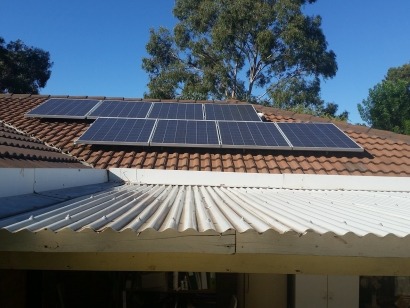
In a new paper, researchers from Berkeley Lab, the National Renewable Energy Lab, and Tufts University explore whether and to what extent non-residential solar installations influence residential adoption trends in surrounding neighborhoods. The researchers reach three main conclusions.
First, the data suggest that non-residential solar installations on businesses, government buildings, schools, and houses of worship increase residential solar adoption. Across various models, the results suggest that residential adoptions increase by around 1 to 4 adoptions per quarter in areas where a non-residential system has been installed.
Second, the estimated magnitude of influence from non-residential buildings is comparable to the estimated magnitude of influence from residential buildings. That is, the research suggests that individuals are about as likely to be influenced to adopt solar by a nearby non-residential installation as by a nearby residential installation.
Third, the results suggest that the degree of influence varies across different building types, though further research is required to estimate differences more precisely and the source of those differences. The researchers posit that the relationships between different types of institutions and their communities could explain differences in influence. For instance, schools and houses of worship directly engage with local communities in ways that have been demonstrated to influence behavior in other areas and could likewise influence solar adoption decisions.
Future research could explore specific mechanisms for non-residential influence on residential solar adoption decisions, such as visual cues, direct interactions between non-residential institutions and communities, installer-related mechanisms, or other factors.
The authors will host a webinar on February 7, 2023.
Funding support was provided by the U.S. Department of Energy Solar Energy Technologies Office as part of the Solar Energy Innovation Network Initiative.

